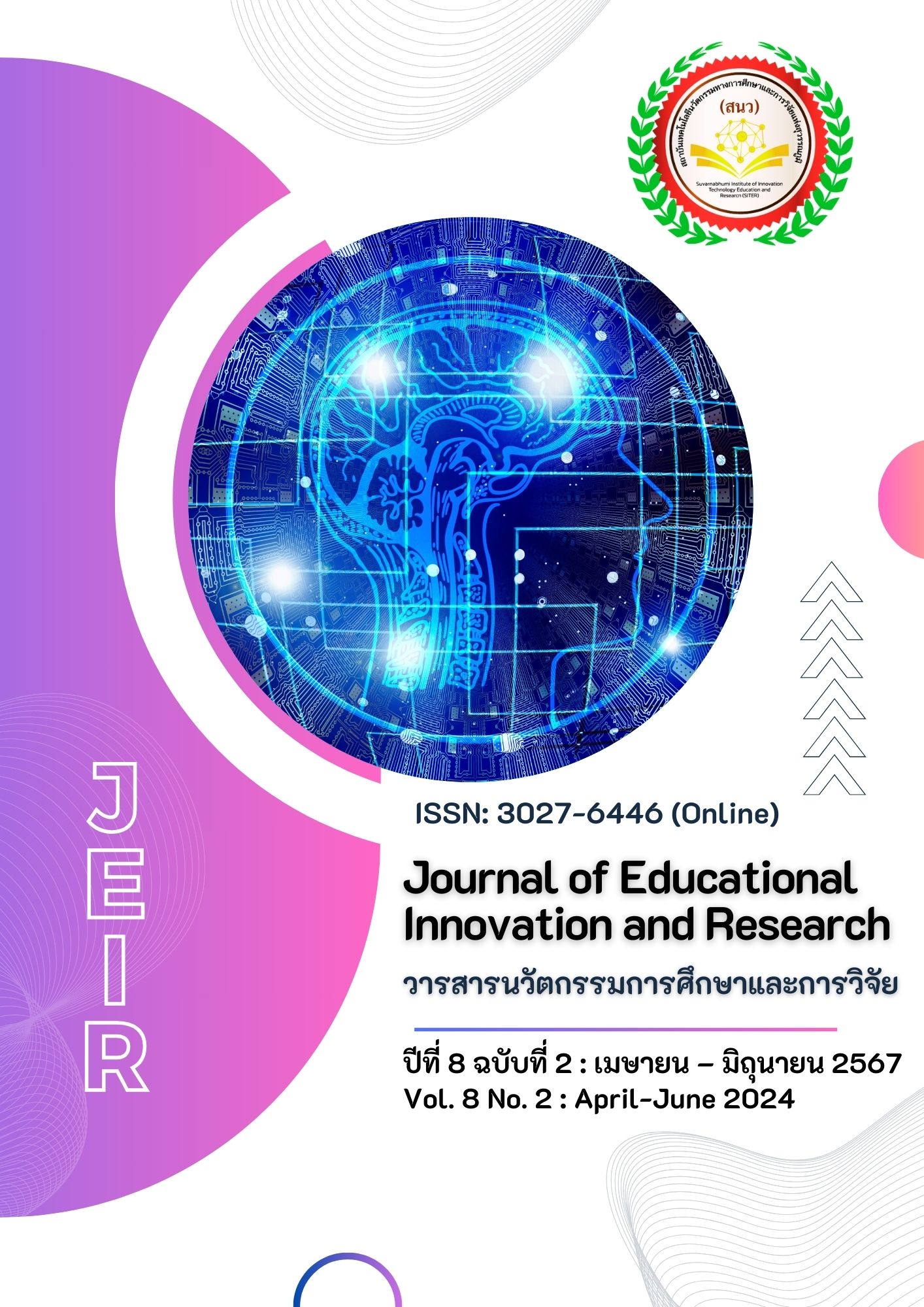การวิเคราะห์สถานภาพของหน่วยงานที่มีบทบาทในการส่งเสริมการเข้าถึงการศึกษาและการเรียนรู้ของเด็กและเยาวชนนอกระบบการศึกษา
Main Article Content
บทคัดย่อ
การศึกษานี้มีวัตถุประสงค์เพื่อวิเคราะห์หน้าที่ ความรับผิดชอบ และแนวปฏิบัติที่ดีในการดำเนินงานของหน่วยงานที่มีบทบาทในการส่งเสริมการเข้าถึงการศึกษาและการเรียนรู้ของเด็กและเยาวชนนอกระบบการศึกษา งานวิจัยนี้ได้ดำเนินการบนพื้นฐานแนวคิดการตีความหมาย โดยออกแบบงานวิจัยเชิงคุณภาพด้วยการวิเคราะห์เรื่อง เก็บข้อมูลด้วยการศึกษาเอกสารและการสัมภาษณ์เชิงลึกตัวแทนผู้ทำงานจาก 21 หน่วยงานจากทั่วประเทศไทยที่มีผลงานเกี่ยวข้องกับเด็กและเยาวชนนอกระบบการศึกษา
ผลการศึกษาพบว่า หน้าที่ และความรับผิดชอบของหน่วยงาน มี 3 ลักษณะ ได้แก่ 1) หน่วยงานที่มีบทบาทในการปฏิบัติงานเพื่อเด็กและเยาวชนนอกระบบการศึกษา ทำงานดูแลเด็กและเยาวชนนอกระบบการศึกษา ร่วมจัดการศึกษา การเรียนรู้นอกเวลาเรียน และจัดกิจกรรมเนื่องในโอกาสต่าง ๆ ให้เด็กและเยาวชนนอกระบบการศึกษา 2) หน่วยงานที่มีบทบาทในการให้กรอบนโยบายการปฏิบัติงาน เน้นการผลักดันนโยบายในการทำงาน และประสานความร่วมมือ และ 3) หน่วยงานที่ทำงานให้การสนับสนุนการผลักดันโครงการเพื่อพัฒนาเด็กและเยาวชนนอกระบบการศึกษา และให้ทุนสนับสนุนการทำงานแก่หน่วยงานต่าง ๆ ที่ทำงานด้านเด็กและเยาวชนด้อยโอกาส รวมถึงการติดตามและประเมินผล โดยแนวการปฏิบัติที่ดีในการทำงานของหน่วยงานมี 4 ประเด็น ได้แก่ 1) การส่งเสริมการศึกษาขั้นพื้นฐาน 2) การส่งเสริมการเรียนรู้ทักษะชีวิตและฝึกอาชีพ 3) การดูแลสุขภาพ และ 4) การดูแลความปลอดภัยในชีวิต ซึ่งข้อจำกัดในการดำเนินงานของหน่วยงาน ได้แก่ ข้อจำกัดด้านบุคลากร การทำงานส่งเสริมให้เด็กและเยาวชนได้รับการศึกษาที่สูงขึ้นการทำงานในพื้นที่ และงบประมาณการดำเนินการ
Article Details

อนุญาตภายใต้เงื่อนไข Creative Commons Attribution-NonCommercial-NoDerivatives 4.0 International License.
เอกสารอ้างอิง
Chakkaew, W. (2018). Increasing opportunities and access to higher education for underprivileged children in the upper northern region. Veridian E-Journal, Silpakorn University Thai version, Humanities, Social Sciences and Arts, 11(3), 1767-1785.
Charungkiattikul, S. (2018). Guidelines for organizing lifelong education to drive a learning community. In the social and cultural context of Thailand. Journal of Education Chulalongkorn University, 46 (2), 218-239.
Jitsuchon, S. (2021). Social impacts of the COVID-19 outbreak. New wave and measures that should be taken. https://tdri.or.th/2021/01/impact-of-new-covid-19-wave/
Levinson, D.J. (1964). Role Personality and Social Structure. Mc Millan Company.
Ministry of Education. (2008). Announcement of the Ministry of Education regarding standards of higher education institutions, 2008. The Agricultural Co-operative Federation of Thailand Printing Press.
Ministry of Education. (2023). Learning Promotion Act 2023. Piyamit Multimedia Company Limited.
Office of the National Education Commission. (2002). National Education Act B.E. 2542 and its amendments (No. 2) B.E. 2002. Phrikwan.
Office of the Permanent Secretary, Ministry of Education. (2008). Manual for the operation of the non-formal education curriculum at the basic education level, 2008. Bangkok: Rangsi Printing.
Pattayanon, P. (2021). 12 education management policies, 7 urgent agendas of the Ministry of Education. http://www.spm7.go.th/web2021/?p=1799.
Rattanachusri, T. (2007). Role in the operations of the agricultural cooperative committee in Satun Province [Master’s Thesis, Thaksin University].
Rohitsathien, B. (2021). Cabinet approves draft. National Education Act and the Learning Promotion Act. https://moe360.blog/2021/06/01/cabinet-resolution-010664/
Royal Thai Government Gazette. (2017). National Child and Youth Development Promotion Act No. 2, 2017. https://www.ratchakitcha.soc.go.th/DATA/PDF/2017/A/063/1. PDF
Satangchan, T. (2018). Development of activities to promote learning in the 21st century for students of schools under the Loei Primary Educational Service Area Office, Area 2. E-Journal, Silpakorn University, Thai version, Humanities, Social Sciences and Arts, 11(1), 343-365.
Tantichuwet, P. (2016). Guidelines for organizing education for children and youth outside the education system: A case study of Tak Province [Research Report, Dhurakij Pundit University].
Tashakkori, A., & Teddlie, C. (2003). Handbook of Mixed Methods in Social and Behavioral Research. Thousand Oaks Sage.
Thammawithikul, A. (2018). Principles of organizing non-formal education. and educational philosophy regarding non-formal education. https://panchalee. wordpress.com/2009/03/28
Thawornprasit, B. and Charoenviriyapap K. (2010). The role of government and private agencies in promoting the development of the potential of the local processed seafood industry around the Songkhla Lake basin. Journal of Economics and Public Policy, 1(2), 41-53.
The Equitable Education Fund. (2019). Operational manual for receiving conditional subsidies for exceptionally poor students. (Equality scholarship student). https://bit.ly/2PYRv9s
The Equitable Education Fund. (2020). Situation of children outside the system. https://oosc-report.firebaseapp.com/#Overview
Wechayanon, N. (2008). New dimensions in human capital management. Graphico Systems.


